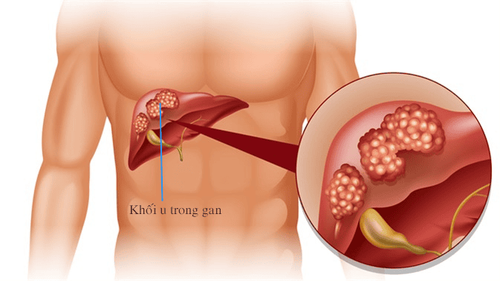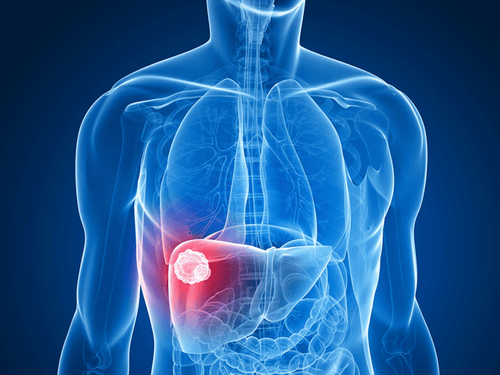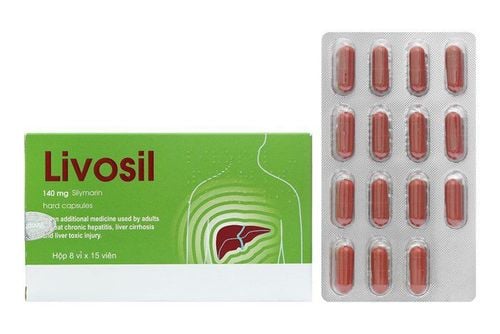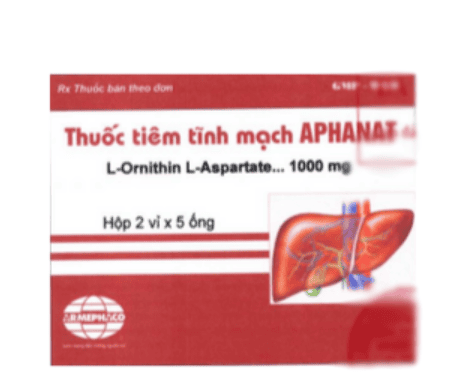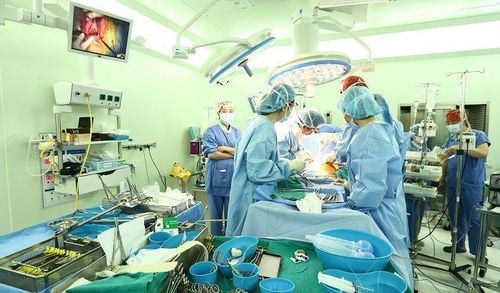This is an automatically translated article.
The liver performs important functions such as filtering toxins in the blood, storing sugar and digesting fats. Tumors in the liver are very rare in children. Although liver cancer can be benign or malignant, both grow and affect healthy liver tissue. So how are benign liver tumors in children diagnosed clinically and subclinically, what are the symptoms of the disease?
1. Types of benign liver tumors in children
Benign liver tumors do not spread to other areas of the body and do not usually pose a health risk. In fact, the majority of benign liver tumors go undiagnosed because they cause no symptoms. Benign liver tumors in children are only discovered when the child goes to the doctor for other medical problems that require diagnostic techniques such as ultrasound, CT or MRI tests.
Benign tumors can occur at many different ages, from right after birth to adulthood. Types of benign liver tumors include:
Hepatic mesenchymal hamartomas, liver adenomas (adenomas) Hemangiomas in the liver (hemangiomas)

Bệnh U máu trong gan (hemangioma)
2. Symptoms of benign liver tumors in children
Most benign liver tumors in children have no symptoms. Symptoms often go undetected until the tumor is so large that it pushes on other organs. Some symptoms of benign liver tumor in children are obvious such as:
Feel the tumor in the abdomen or the child has swelling in the abdomen Pain in the right side of the abdomen, the location of the liver placement Early puberty Uneven growth of the limbs ( e.g. one leg may be shorter than the other) Appetite and weight loss. If the tumor pushes on the stomach, it can make the child feel full faster, limiting the amount of food the child can eat. If this goes on long enough, the child may even lose weight. Vomiting Jaundice of the skin and eyes Anemia (low red blood cell count)
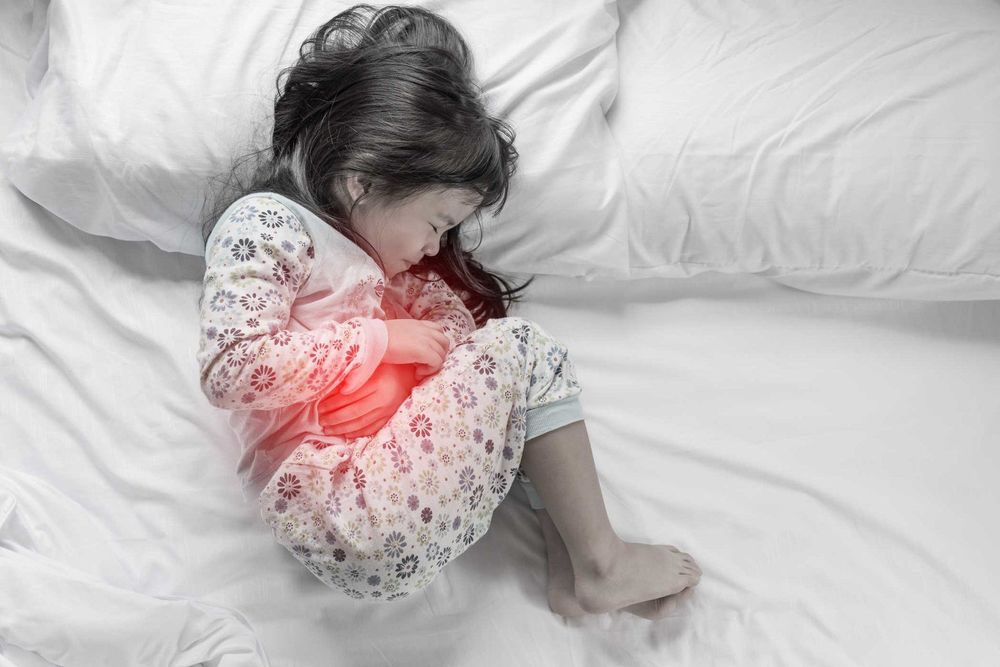
Trẻ xuất hiện đau bụng kèm theo vàng da
3. Clinical and subclinical diagnosis of benign liver tumors
Most benign liver tumors do not cause symptoms and are found incidentally only when a child is seen by a doctor for another medical problem that requires an ultrasound, CT scan, or MRI scan.
If it is suspected that the child has a liver tumor, the doctor will perform a number of clinical and subclinical diagnostic techniques for benign liver tumor as follows:
Imaging techniques include CT scan, MRI, X-ray, ultrasound, and liver scan: These diagnostic techniques are not only helpful in determining the size and location of a tumor, but can also help identify other health problems such as a mass. u affect the nearby organs or not (to better understand the benefits of this technique you can refer here). Biopsy: A biopsy may be done if CT or MRI does not clearly show the nature of the liver tumor. A biopsy is a technique in which a piece of tissue is removed from the liver for examination in a laboratory. Biopsies can often be done laparoscopically instead of invasively. To better understand the benefits and safety of this technique, you can refer here. Blood tests. Tests such as a complete blood count, liver function tests, and blood chemistries to evaluate the functioning of the liver and other organs. An AFP (Alpha -Fetoprotein) test may also be done to determine how well the liver is working. If your doctor suspects a genetic tumor, certain genetic tests may also be done.
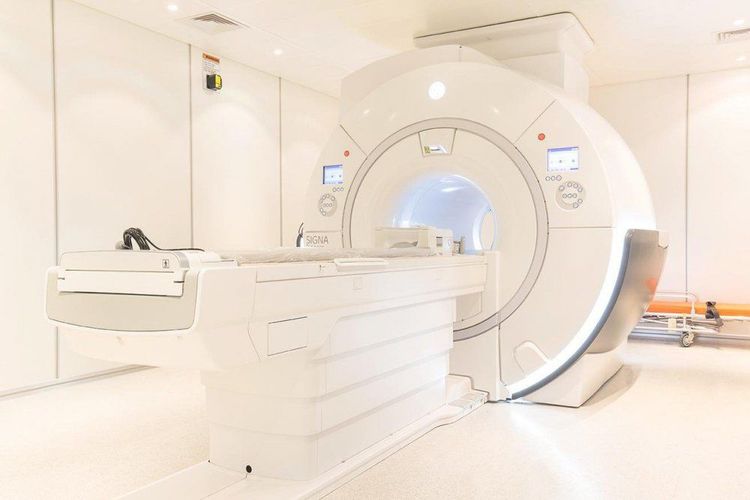
Chụp MRI giúp chẩn đoán chính xác khối u trong gan
4. Treatment of benign liver tumors in children
Treatment for benign liver tumors in children is usually surgical removal of the tumor. This is the best and most effective treatment. Sometimes, in cases of benign tumors, doctors can only monitor them if the tumor is not causing serious symptoms. However, if the benign tumor grows rapidly or causes other problems, the doctor will have to perform surgery to remove the tumor.
In addition, to be sure to check the health of your child's liver, you can perform hepatobiliary screening at a reputable medical center. Currently, Vinmec International General Hospital has Hepatobiliary Screening packages, which help detect liver diseases at the earliest, even when the disease has no symptoms. Hepatobiliary screening package is very diverse, suitable for your needs:
Hepatobiliary screening package - comprehensive Package of hepatobiliary screening - advanced Hepatobiliary screening package - standard Is a key area Of Vinmec Health System, Pediatrics Department always brings satisfaction to customers and is highly appreciated by industry experts with:
Gathering a team of leading pediatricians: including leading experts. industry, has high professional qualifications (professor, associate professor, doctorate, master), rich experience, has worked at major hospitals such as Bach Mai, 108.. The doctors are all well-trained. original, professional, with a mind - range, understanding young psychology. In addition to domestic pediatric specialists, the Department of Pediatrics also has the participation of foreign experts (Japan, Singapore, Australia, USA) who are always pioneers in applying the latest and most effective treatment regimens. . Comprehensive services: In the field of Pediatrics, Vinmec provides a series of continuous medical examination and treatment services from Newborn to Pediatric and Vaccine,... according to international standards to help parents take care of their baby's health from birth to childhood. from birth to adulthood Specialized techniques: Vinmec has successfully deployed many specialized techniques to make the treatment of difficult diseases in Pediatrics more effective: neurosurgery - skull surgery, stem cell transplantation. blood in cancer treatment. Professional care: In addition to understanding children's psychology, Vinmec also pays special attention to the children's play space, helping them to have fun and get used to the hospital's environment, cooperate in treatment, improve the efficiency of medical treatment. To register for examination and treatment with Pediatricians at Vinmec International General Hospital, please click the "Contact Us" button on the website or register online HERE.
MORE:
How to treat liver tumors? The dangers of liver cancer Benign and malignant liver tumors: Things to know





